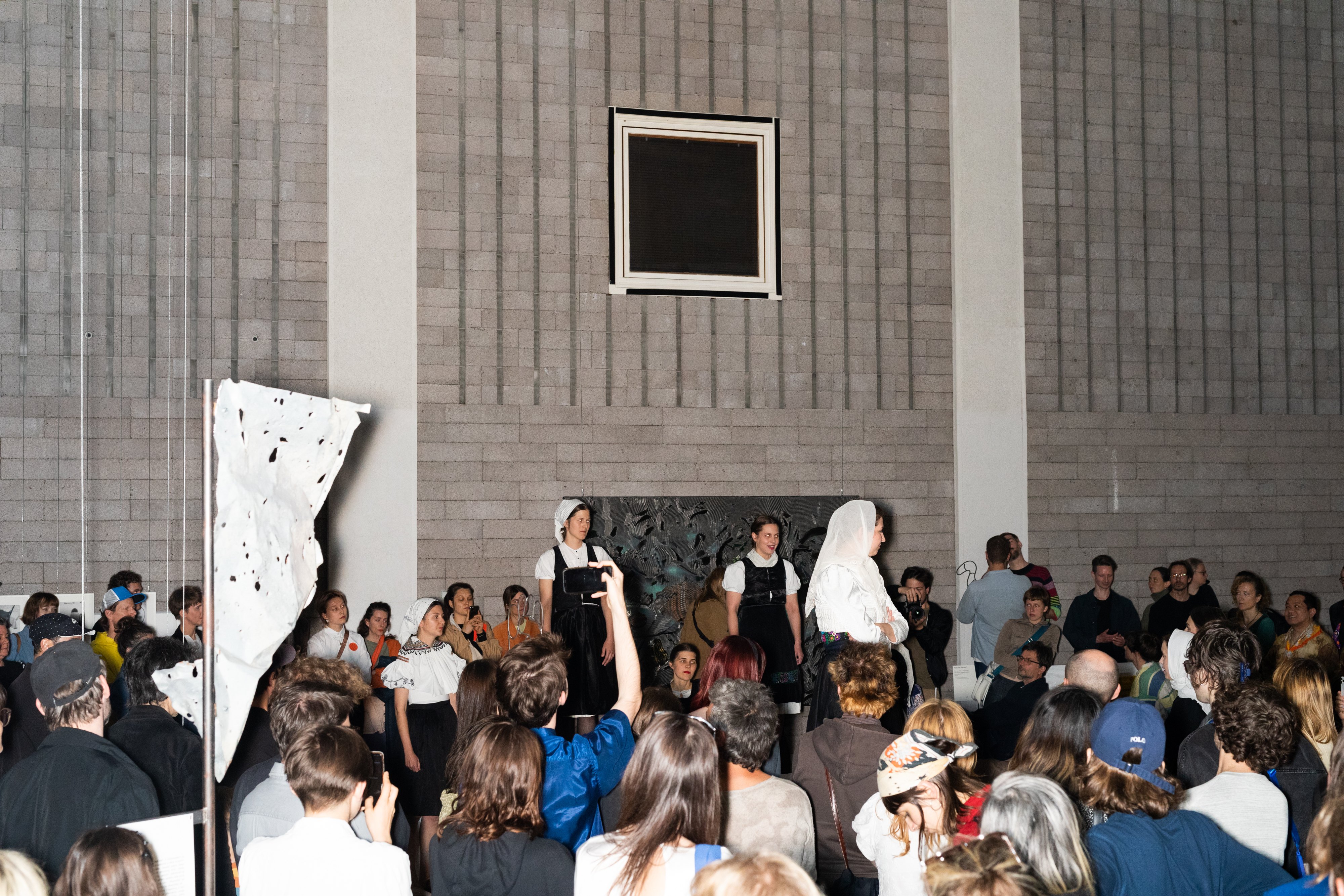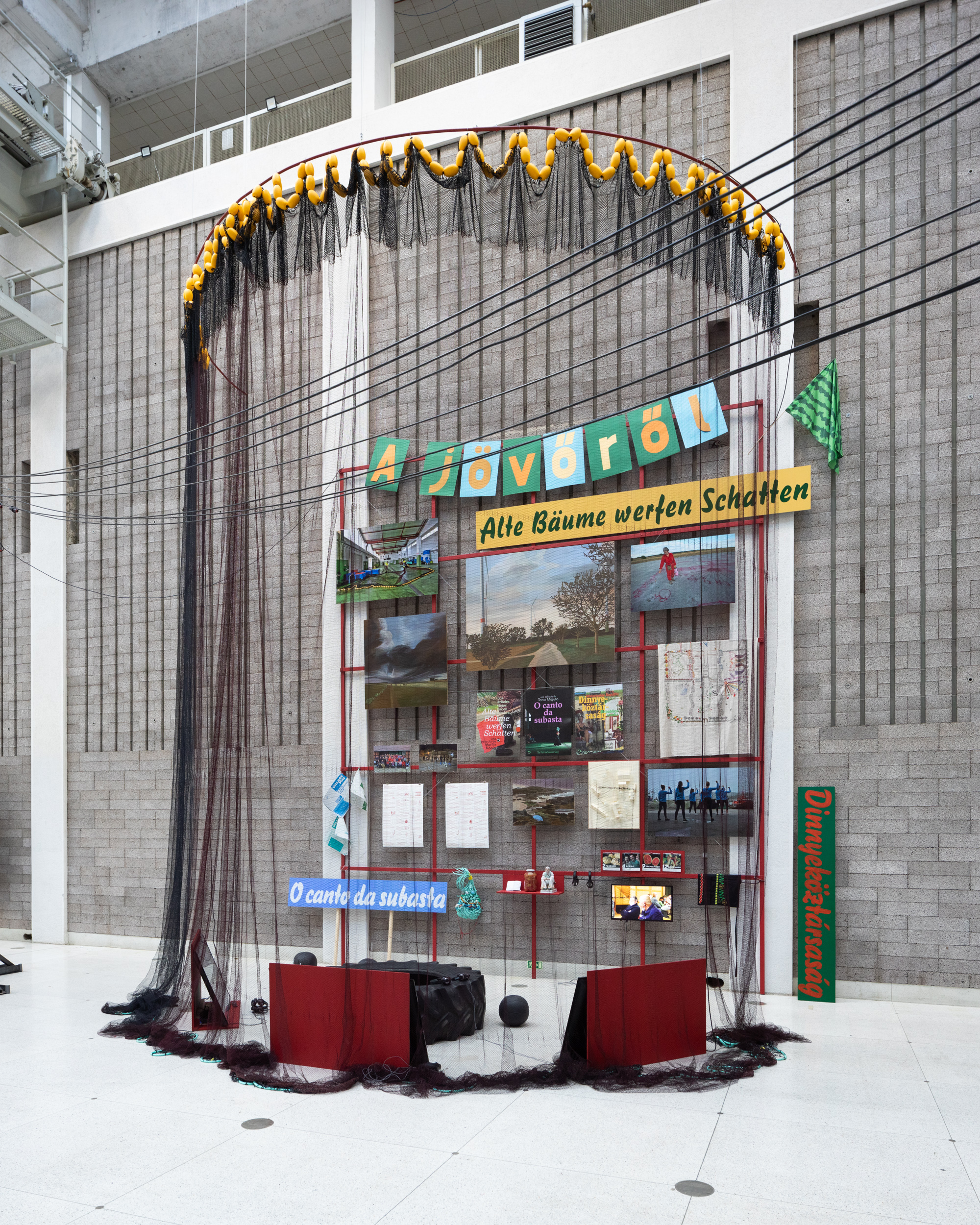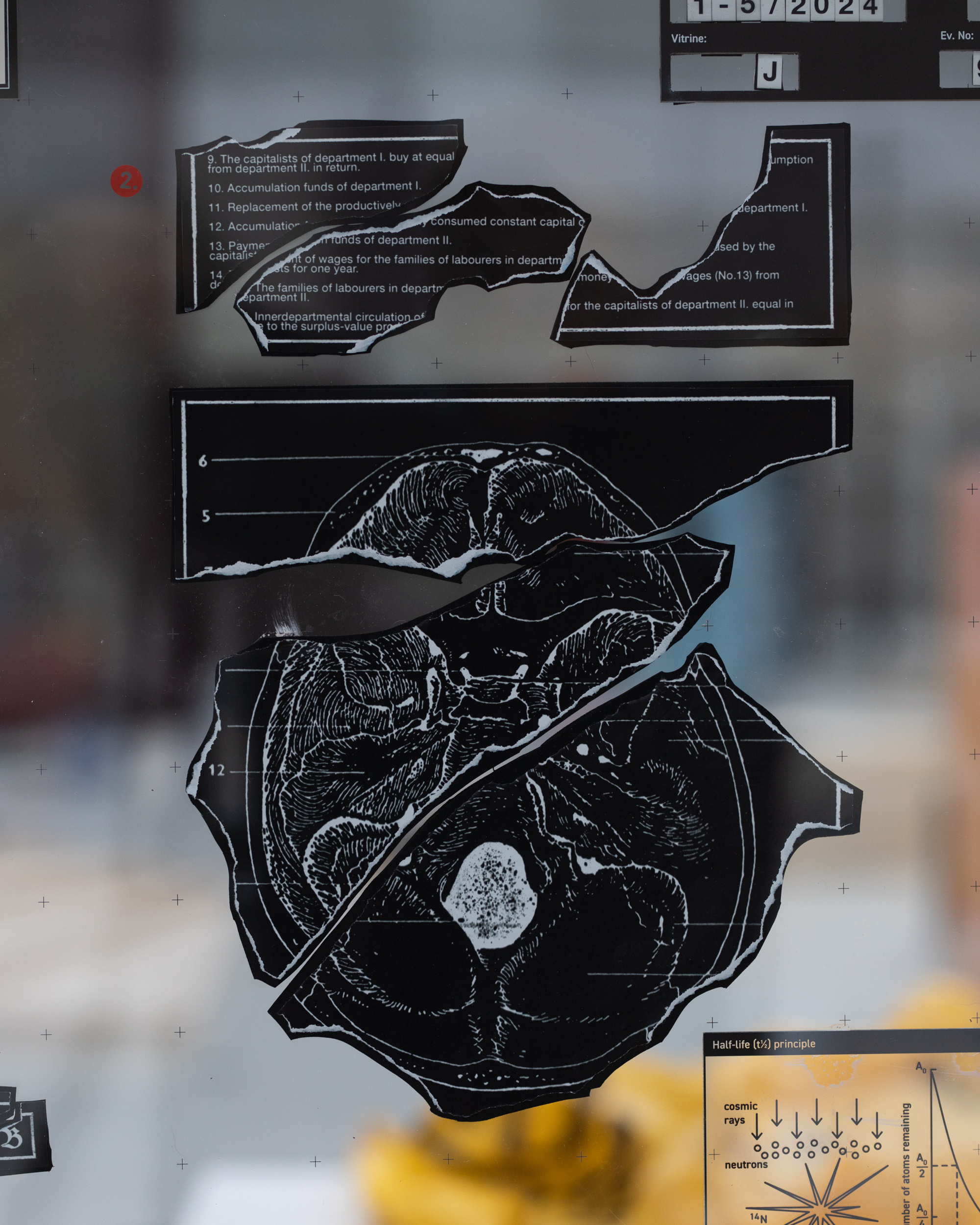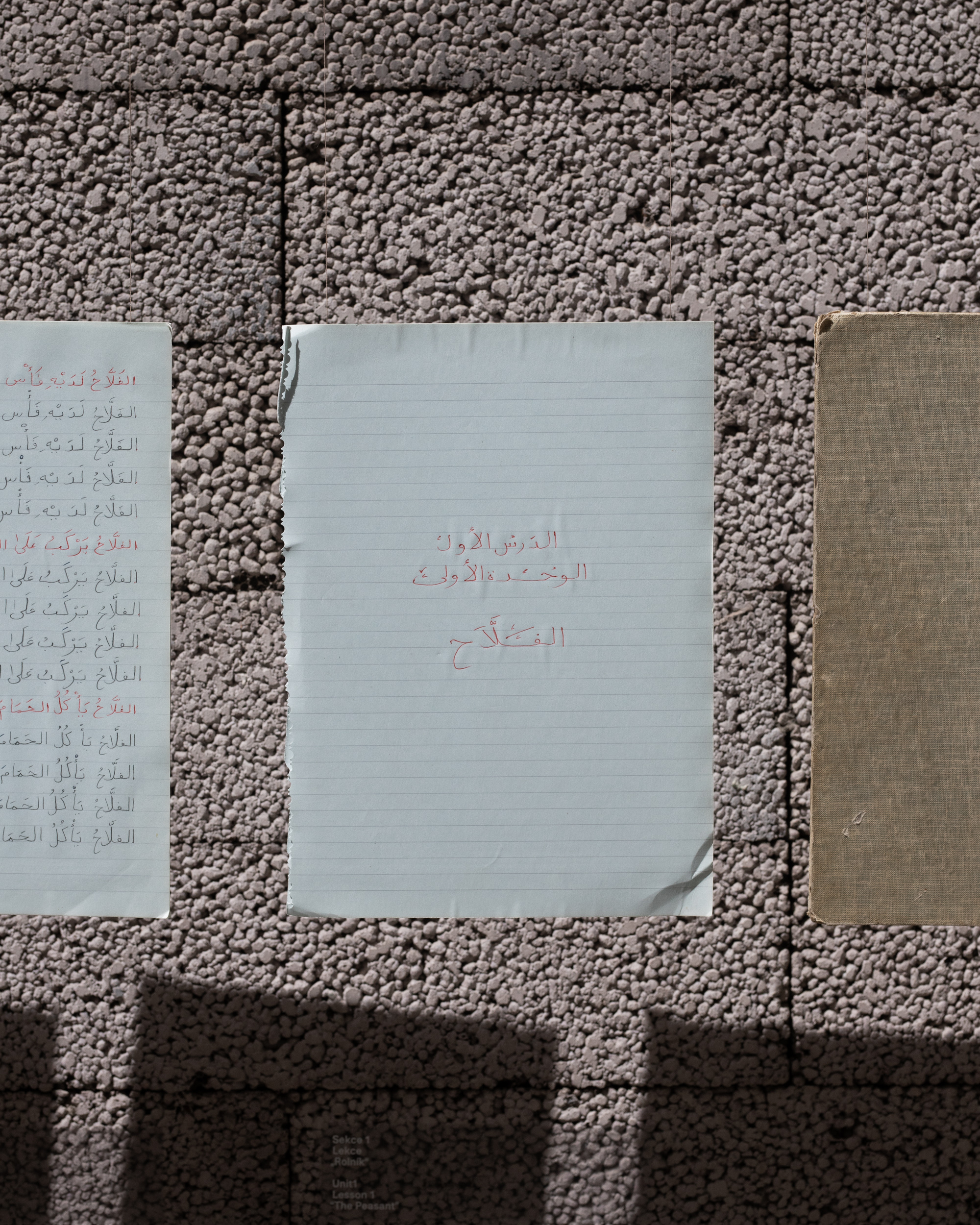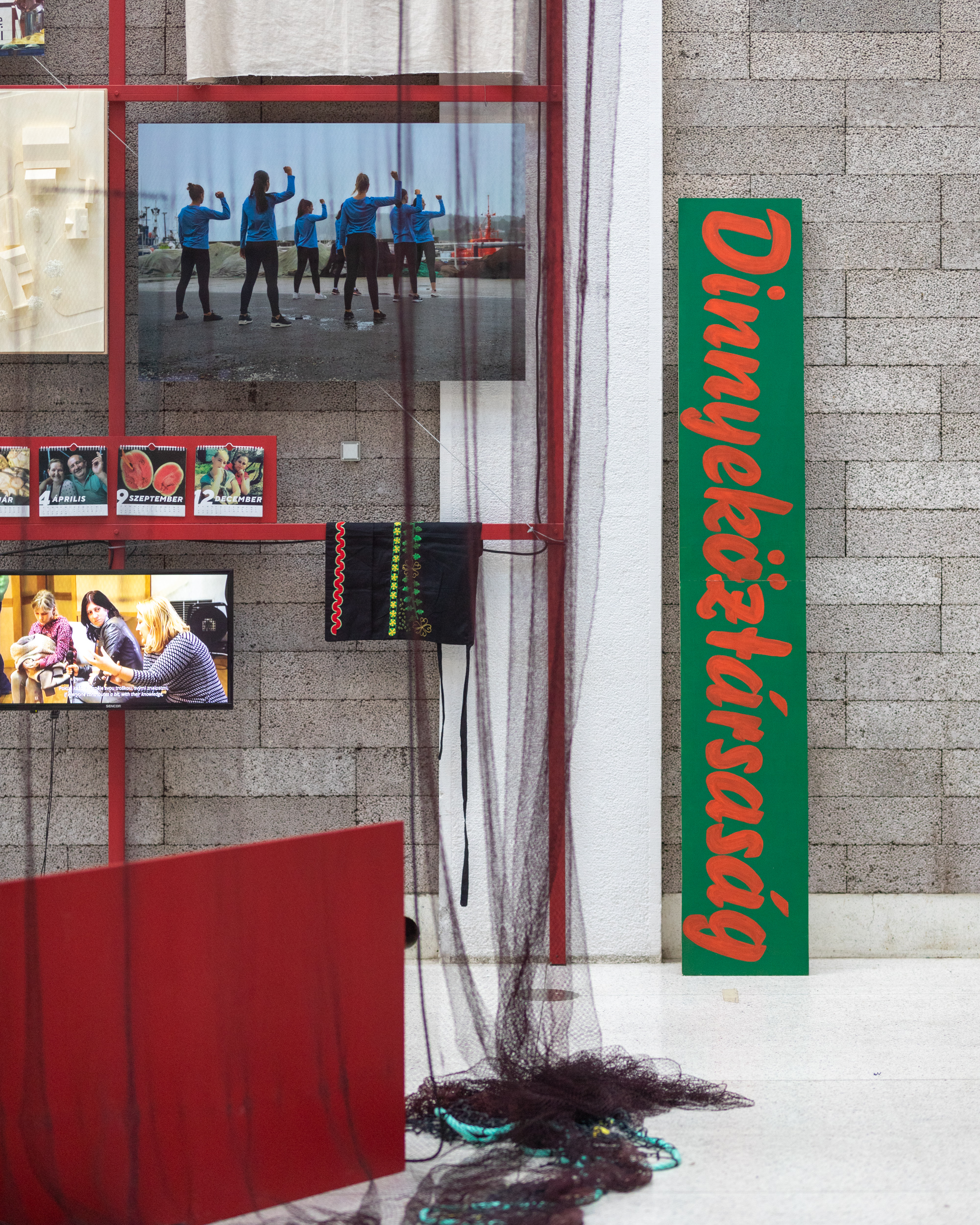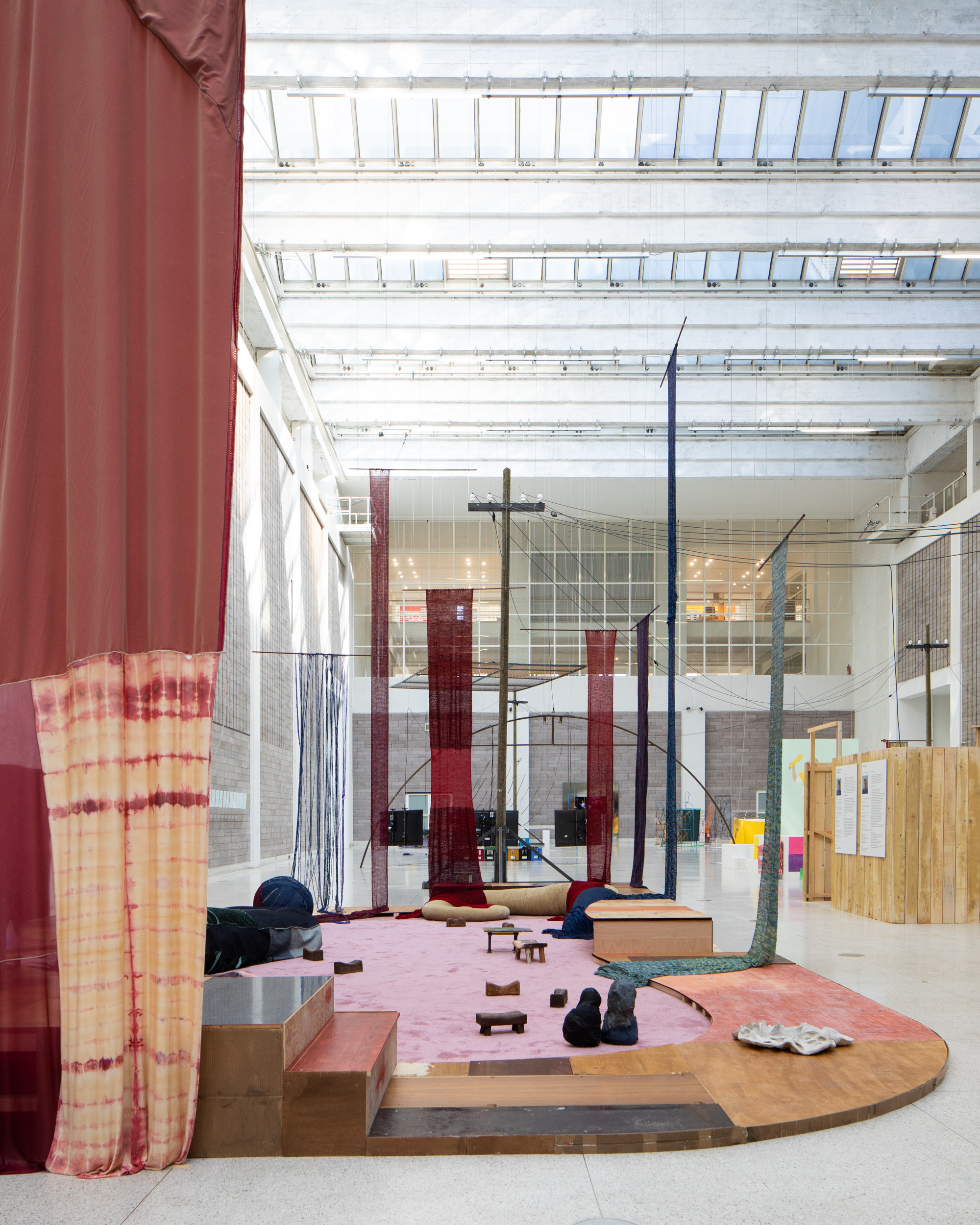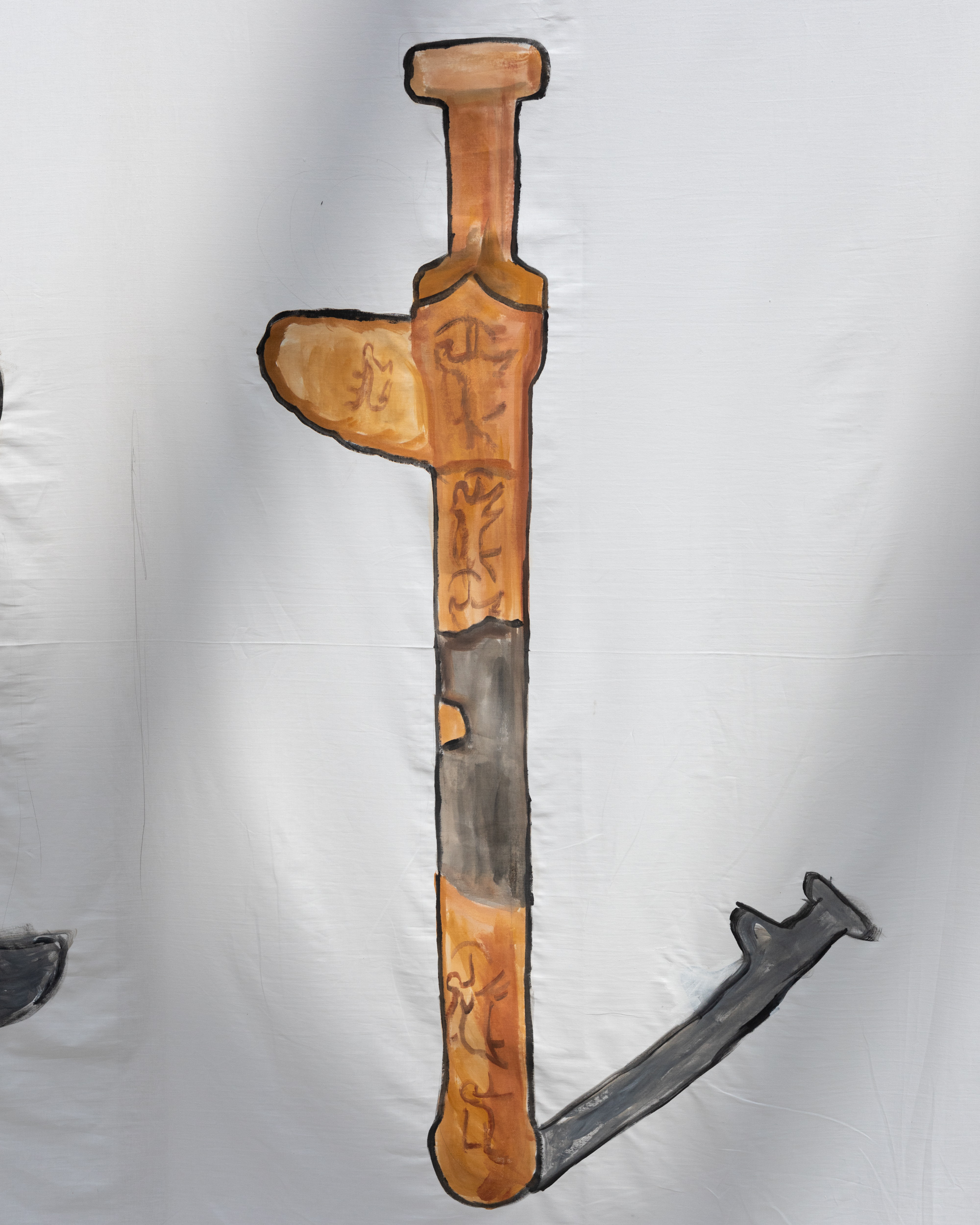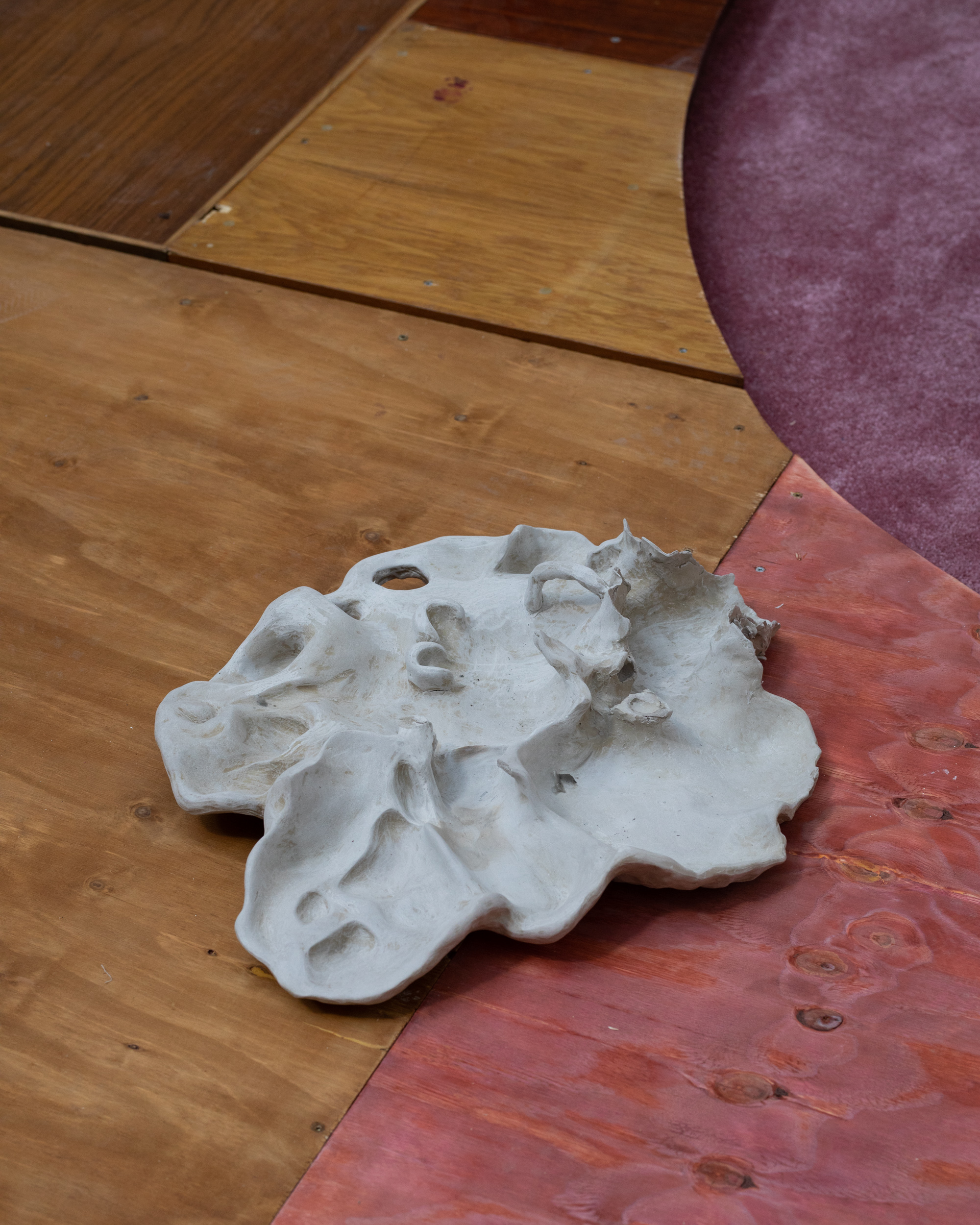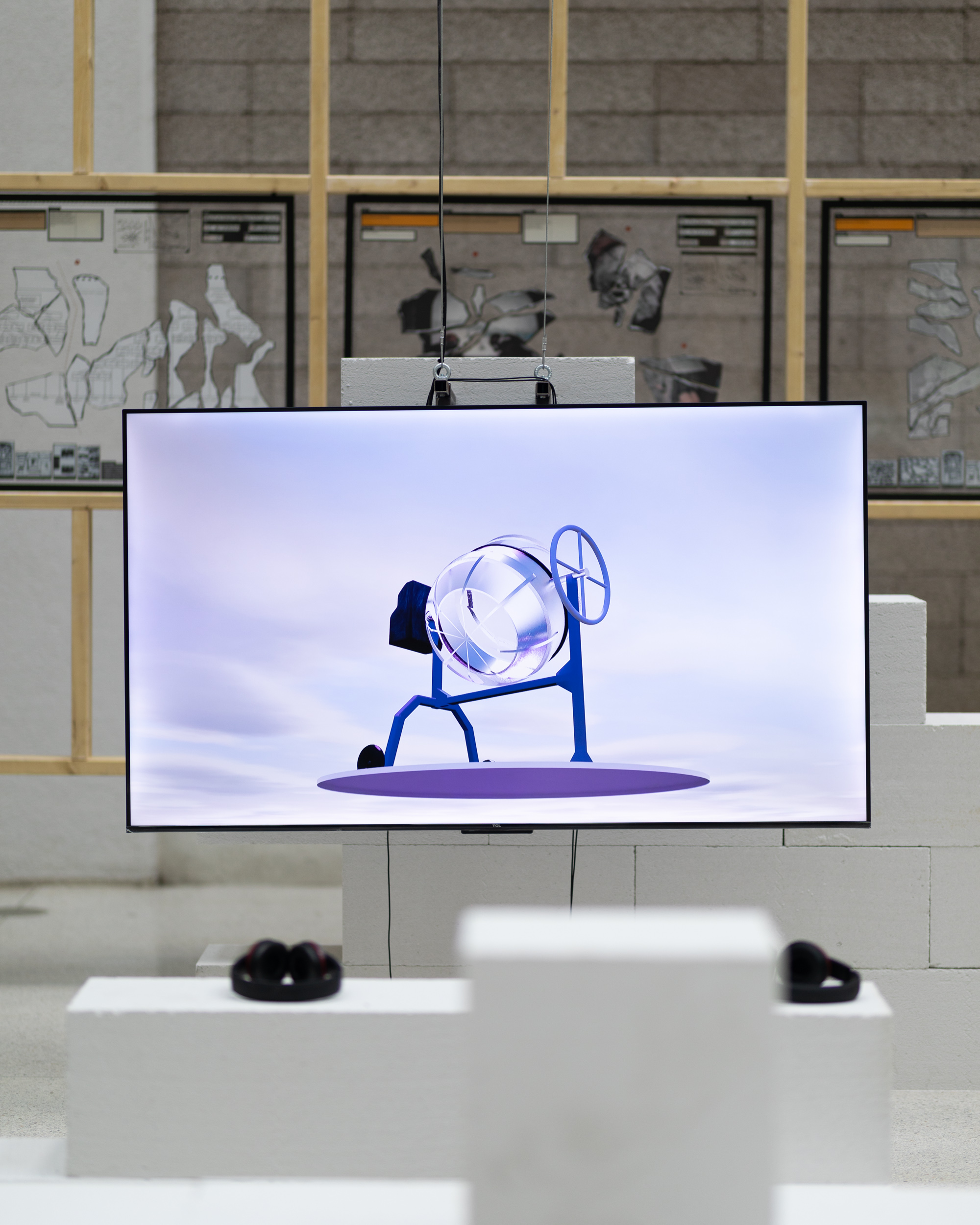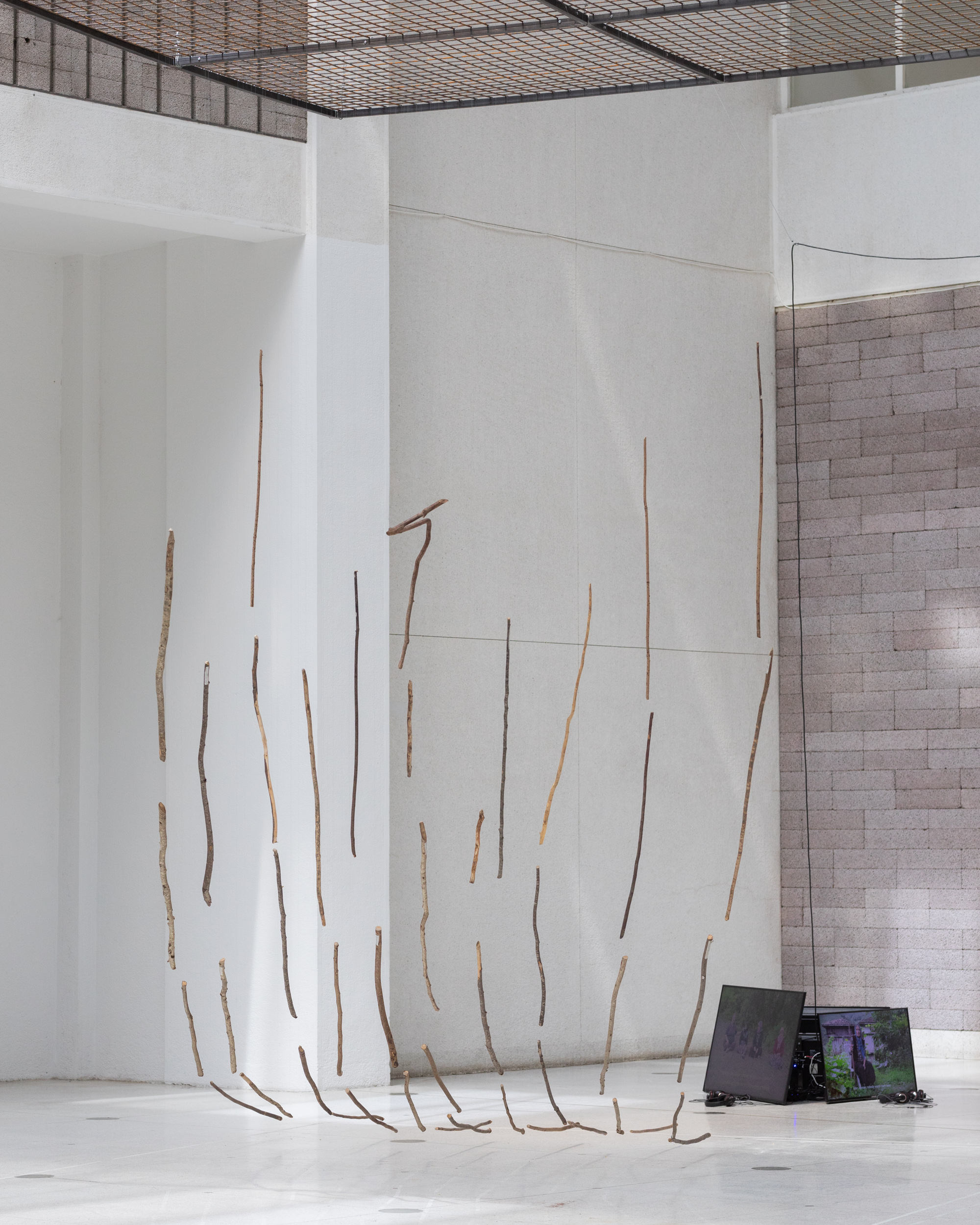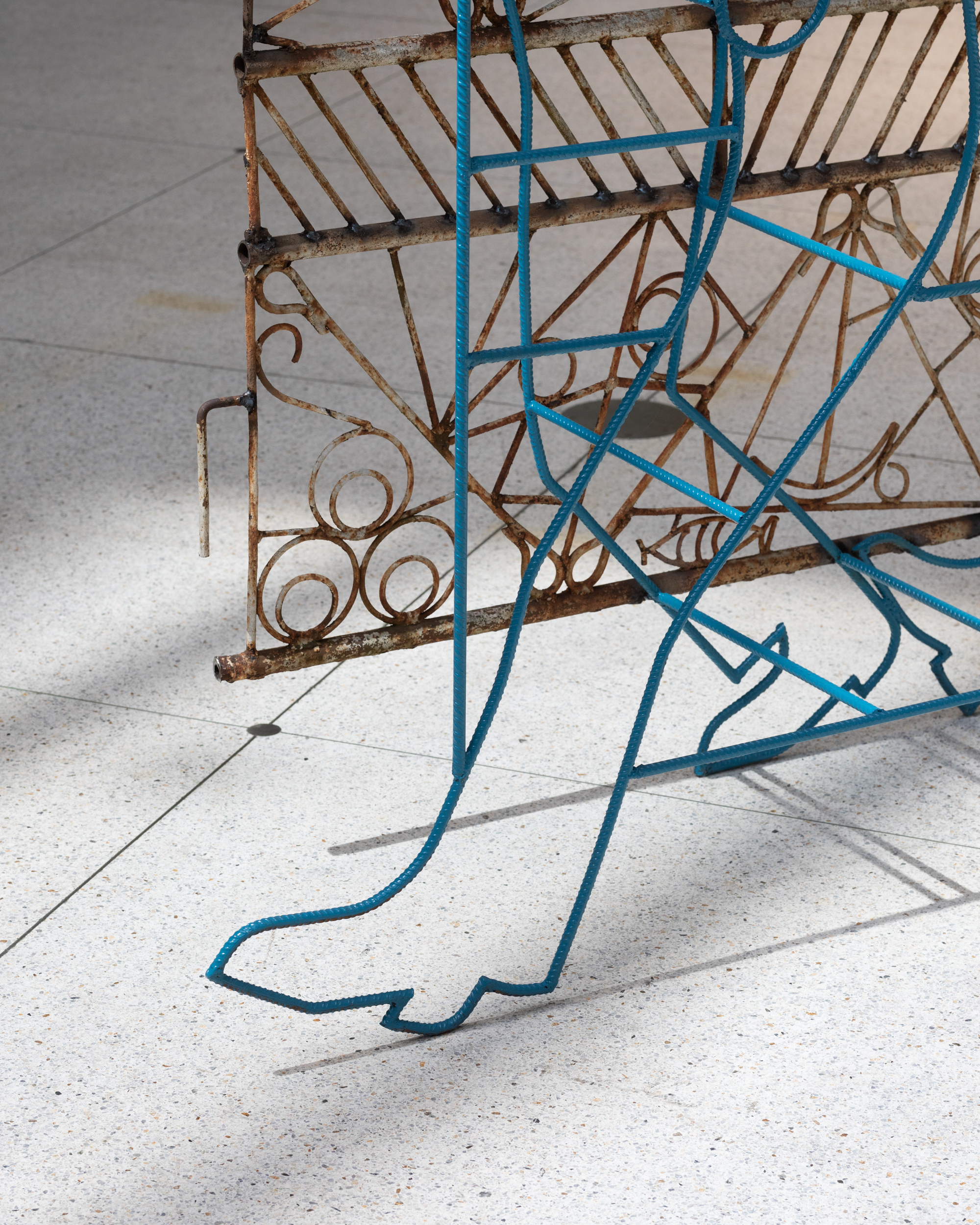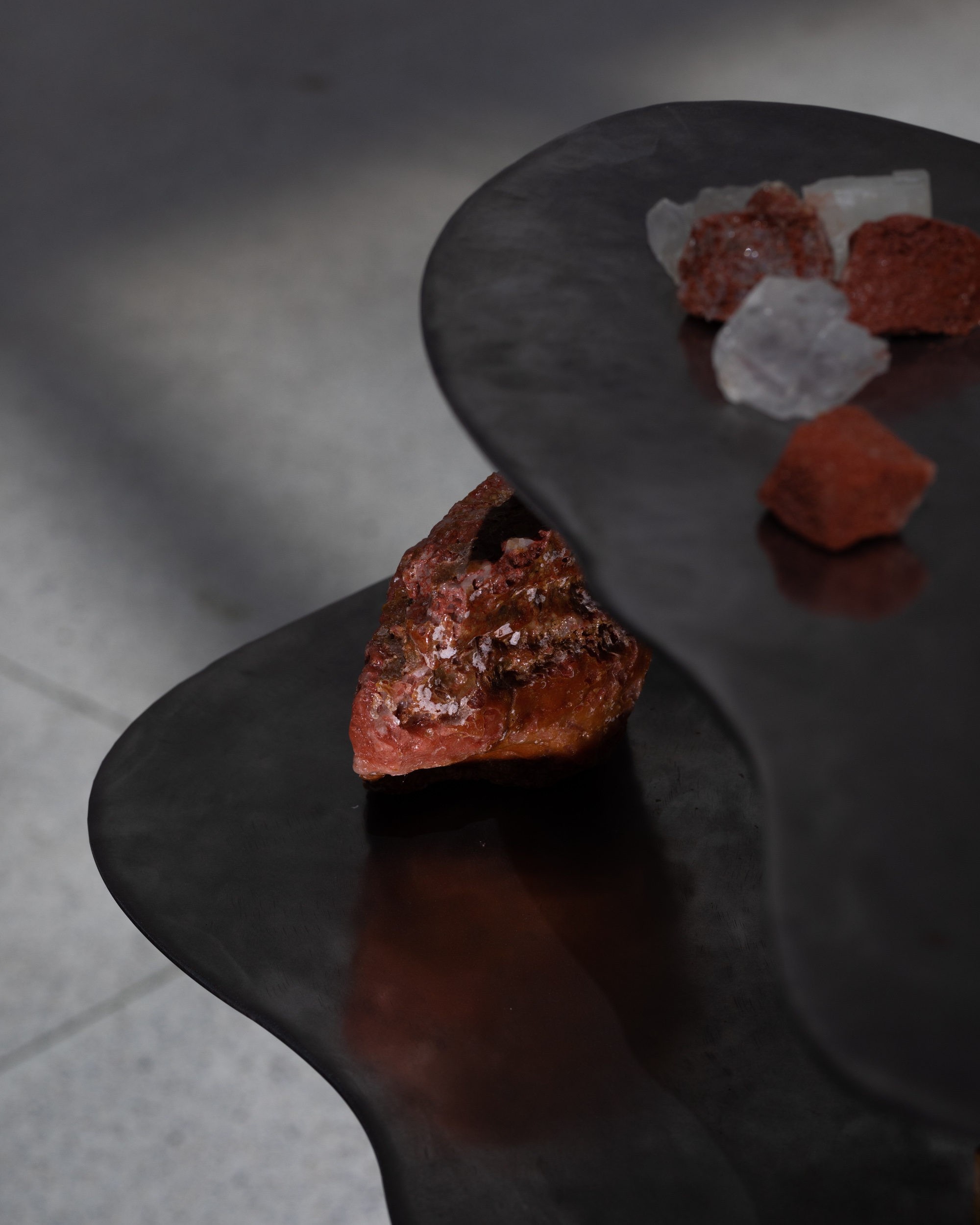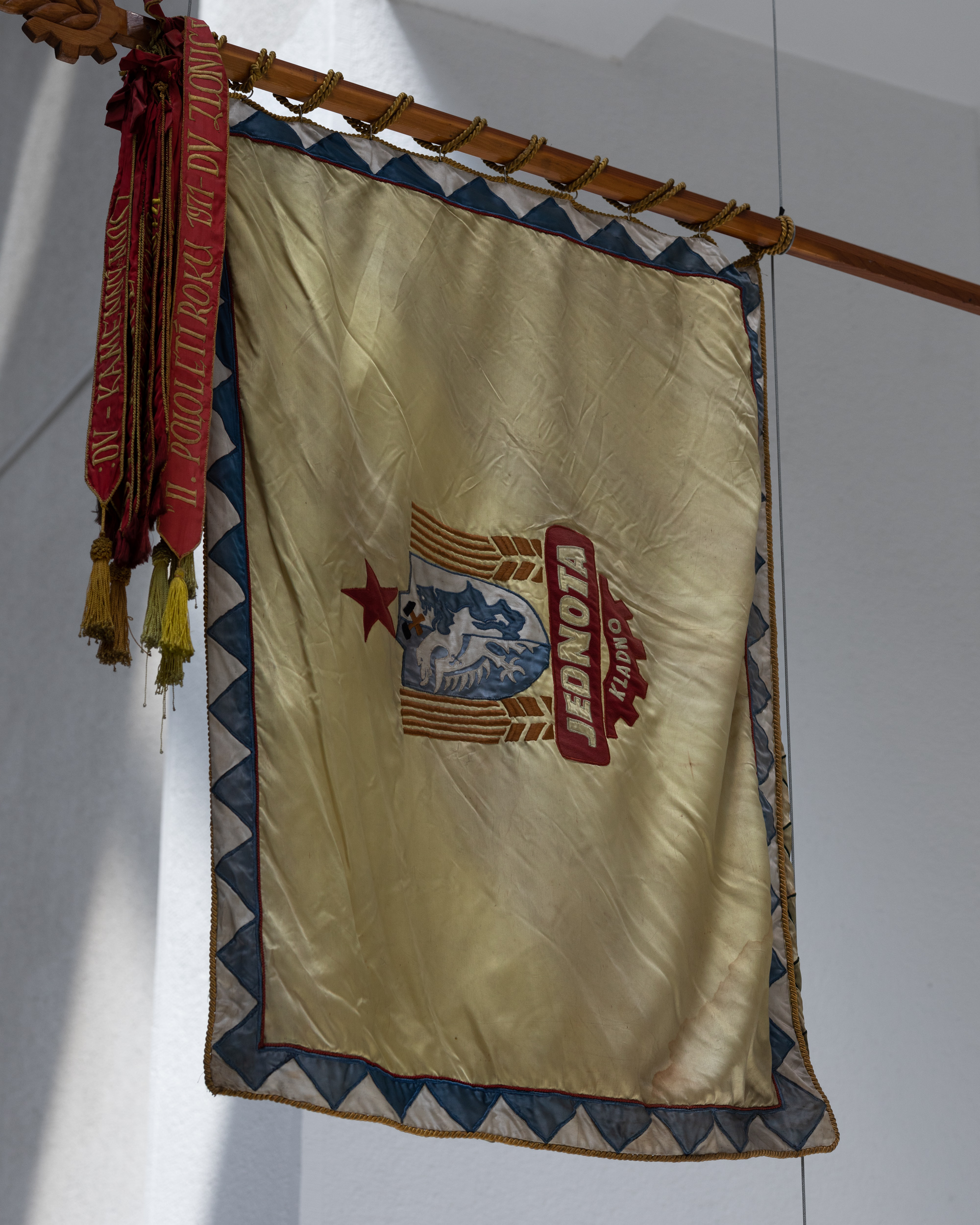Biennale Matter of Art
14 June – 29 September 2024, Prague / Lidice
Biennale Matter of Art 2024 (c) Jonáš Verešpej
The third edition of the Biennale Matter of Art will take place from June 14, 2024, to September 29, 2024, in the Grand Hall of the National Gallery Prague, the Lidice Gallery, and other venues. Curated by Katalin Erdődi and Aleksei Borisionok, the project will also feature a new bilingual publication comprising theoretical texts and artistic contributions. Admission to the biennale as well as the accompanying public program will be free of charge.
tranzit.cz has commissioned several artists to create new works for the biennale, such as painter Kateryna Lysovenko, interdisciplinary artists Alicja Rogalska and Nikita Kadan, filmmaker and researcher Marta Popivoda, the research group DAVRA (represented by Madina Joldybek, Zumrad Mirzalieva, and Saodat Ismailova), artist, curator, and architect Zbyněk Baladrán, artist and researcher Tomáš Uhnák, and björnsonova & Nik Timková, Zuzana Žabková, Vojtěch Hlaváček, Tamara Antonijević, Tanja Šljivar.
To make the Biennale as accessible as possible, admission to the exhibition and most of the public program is free. It is not necessary to buy tickets, however, you can reserve seats for selected events. Sign up for our newsletter to be the first to know about program updates.
The Biennale Matter of Art was founded in 2020 to explore whether and how it is possible to do larger-scale exhibition projects as political and institutional interventions. The first two editions, held in 2020 and 2022, helped to establish the biennale as a space for voices and perspectives that are not often present or go unnoticed in the mainstream public discourse, even though they can offer lessons in resilience and solidarity. The biennale continues this line in the current edition, foregrounding acts of resistance as resources for hope.
Participating artists
National Galery Prague – Trade Fair Palace
Kateryna Aliinyk, Zbyněk Baladrán, björnsonova & Nik Timková, Zuzana Žabková, Vojtěch Hlaváček, Tamara Antonijević, Tanja Šljivar; cosa.cz, cultural cooperative (Markéta Mráčková, Barbora Šimonová) & Viktor Vejvoda, DAVRA research group (Madina Joldybek, Zumrad Mirzalieva, Saodat Ismailova), Martina Drozd Smutná, Giorgi Gago Gagoshidze, Asunción Molinos Gordo, Uladzimir Hramovich, Adelita Husni-Bey, Nikita Kadan, Kateřina Konvalinová & Judita Levitnerová, Kateryna Lysovenko, Pınar Öğrenci, Natalie Perkof, Marta Popivoda, Randomroutines (Tamás Kaszás & Krisztián Kristóf), Alicja Rogalska, Elske Rosenfeld, Zorka Ságlová, Antje Schiffers, Olia Sosnovskaya, Petr Štembera, Dominika Trapp, Tomáš Uhnák & Asia Dér / Tamás Kaszás / Asunción Molinos Gordo
Lidice Gallery
Kateryna Aliinyk, Michael Ayrton, Yevgenia Belorusets, Arthur Degner, Yaroslav Futymsky, Hans Grundig, Nikita Kadan, Dana Kavelina & Olha Marusyn, Georgies Kotsonis, Yuri Leiderman, Kateryna Lysovenko, M. Marizza, Ján Mudroch, Tetiana Nylivna Yablonska, Margaryta Polovynko, Anton Saienko, Ilya Todurkin
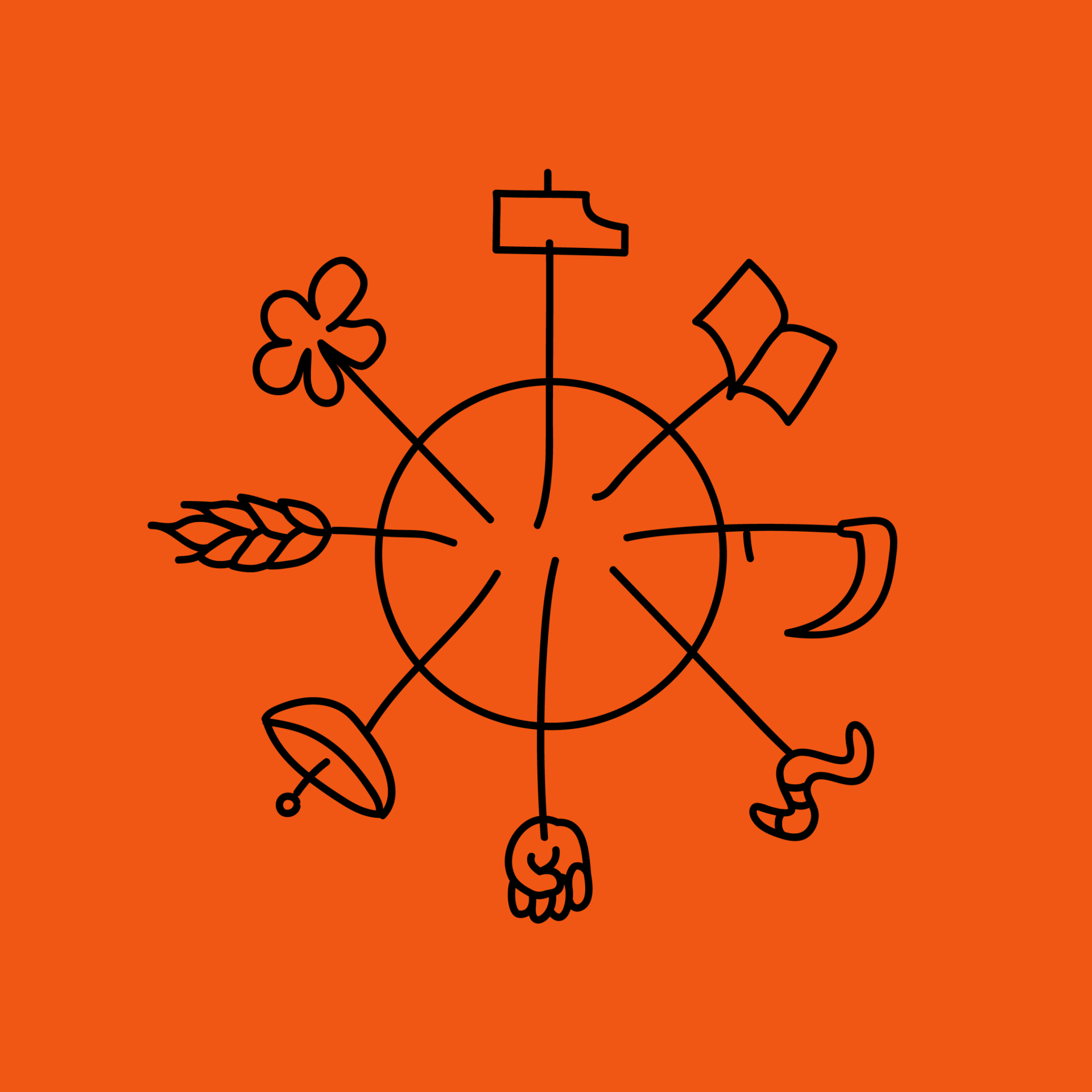
Biennale Matter of Art 2024 visual identity (c) The Rodina
Rural change as social change and the legacies and futures of workers’ movements
The two curators, Katalin Erdődi and Aleksei Borisionok, graft their interests in rural change as social change and the legacies and futures of workers’ movements in order to focus on forgotten stories of social unrest and underrepresented micro-histories of sociopolitical transformation in Central and Eastern Europe and beyond. Bringing together diverse artistic contributions and discursive interventions, the curators look for the resonances between historical struggles and the contemporary moment. Working through the notion of grafting – taken from agriculture and medicine – Matter of Art creates connections between social movements across the changing contexts of the rural and the urban, attending to how the notion of work and the worker finds new meanings. The Biennale Matter of Art marks the first ever collaboration between Erdődi and Borisionok, who are both based in Vienna.
“The unfolding global crisis spans from the extractive work of bodies and algorithms to the exhaustion of living conditions on our planet. Therefore, we ask what can be retrieved from the history of workers’ movements. Labor unrest, both failed and successful, can illuminate the present moment and possible futures of solidarity, political organizing, and justice,” says curator and writer Aleksei Borisionok. He has written for various magazines and publications and curated exhibitions on education and unlearning, workers’ movements and strikes, social movements, and artistic practices in Vilnius, Kyiv, Stockholm, Vienna, and Minsk.
“Rural areas provide for our basic needs, from food to diverse resources and raw materials, which makes rural and urban lives deeply entangled and interdependent. Nevertheless, the voices of people living and working in the countryside are often missing from the public discourse. I am interested in what we can learn from the rural: How can we look beyond cultural stereotypes that tend to regard the countryside as politically backwards and passive and recognize its political potential?” asks curator and dramaturg Katalin Erdődi. Since 2017 Erdődi has been researching rural change through site-specific, collaborative artistic, and curatorial approaches, working across different rural contexts in Hungary, Germany, and Spain.
